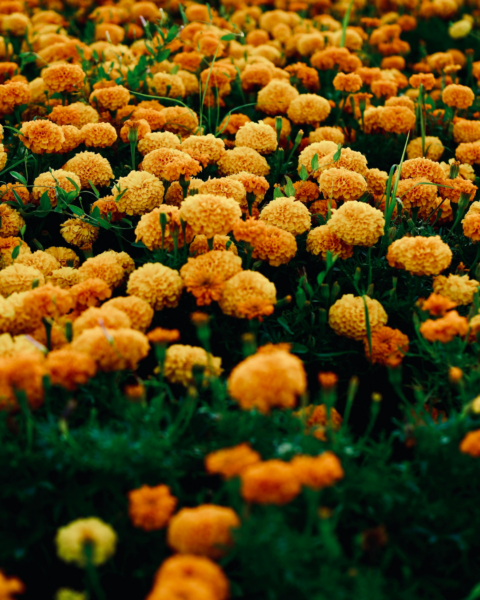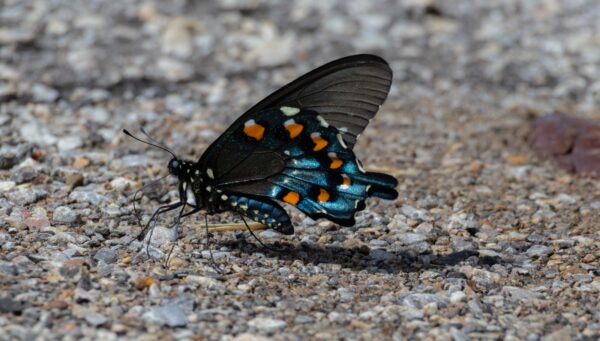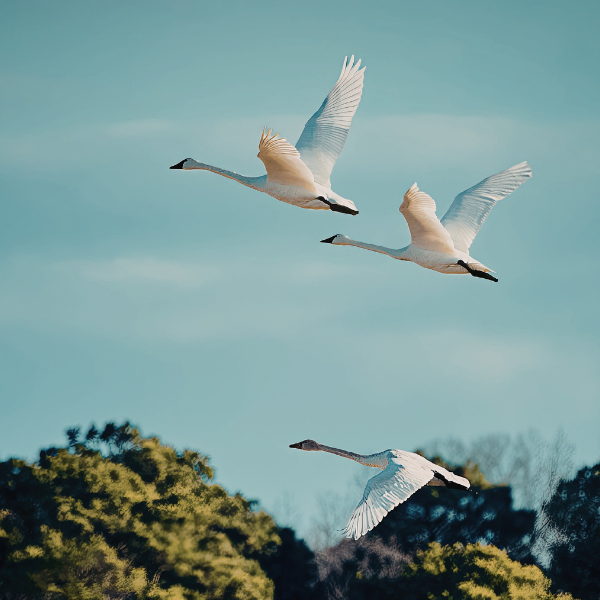I adore Paula Huston’s work and wise spirit. She is a fellow monastic oblate (Camaldolese Benedictine) and writer of several books on spiritual practice, including my favorites Simplifying the Soul: Lenten Practices to Renew Your Spirit and The Holy Way: Practices for a Simple Life. I had the gift of participating in a nonfiction writing workshop with her several years ago in New Mexico through the fabulous Glen workshop. The Glen is a really wonderful gathering of writers and artists wrestling with the questions of meaning and substance in life. Paula is a gifted teacher and also offers her wisdom for writers through the Image Journal‘s online manuscript critique in creative nonfiction.
Years ago, a young newspaper reporter showed up at a contemplative hermitage in the wilderness of Big Sur, hoping to interview some of the monks. Never much in evidence except in the chapel during the Hours, on this particular day they made themselves especially scarce. She looked in vain for someone she could talk to. Finally she was rescued by Fr. Bernard, a diminutive French-Canadian who never could resist the sight of woman in distress. He led her to a bench overlooking the sea, then gallantly invited her to ask him whatever she liked.
Thrilled to have captured a real monk, she said, no doubt a little breathlessly, “You’ve been here for almost fifty years, am I right?”
“You are indeed,” Fr. Bernard responded with his charming blue-eyed twinkle.
“Well, what I really want to know,” she said, “is why a person would ever come to a place like this.”
Without a moment’s pause, as though this were a question he had been thinking about for a very long time indeed, he said, “That is easy. I came here because life is short and I wanted to live it in the best way I could.”
In all the years I have been an oblate member of Fr. Bernard’s community, I have never heard of a better reason for taking up the monastic life. The monk’s life, when it is going well, is a life of discipline and integrity, one that (given enough time and commitment) slowly but inexorably leads to a new kind of person. And when I first met Bernard and his brothers, that is what I wanted more than anything: to be better than I was.
That longing was so strong that it carried me through several decades of learning about and trying my best to practice (while still living very much in the world) various monastic disciplines: silence, solitude, fasting, chastity, frugality, simplicity, anonymity. Much of that time was spent in frustration. My efforts were so weak and I myself so apt to be derailed by the usual stresses of modern life that the task seemed hopeless. Over and over, I rushed to the sanctuary of the hermitage for refueling, only to re-shoulder all my burdensome responsibilities as soon as I got back home. Teaching. Wifehood and motherhood. Caretaking of elderly parents. Farm work. Writing. The obstacles to a contemplative life seemed insurmountable.
Yet one of the great teachers of Christian contemplation, the fourth-century Evagrius of Ponticus, believed that the kind of life I was seeking and failing to find came only to those who did what I was doing, no matter how unproductive it seemed. He called this early, essential stage on the contemplative path “praktikos,” a terms that connotes both “practical” and “practice.” What it means is that we not only read about becoming less self-centered and egotistical but actually “practice” doing this through a disciplined approach to daily life.
If we persevere long enough, he believed, then we will advance to a stage he called “physikos.” We will begin to understand created nature, including human beings. We will begin to see why the world is as it is. Or as the great British Romantic poet Wordsworth put it, we will learn to “see into the life of things.” More, we will begin to love the universe, including our sometimes irritating, sometimes horrifying fellow creatures, in a way we cannot possibly love them when we truly only love and care about ourselves.
And finally, said Evagrius, we might even become “theologikos,” or whose who are gifted–perhaps like Fr. Bernard was at the end–with the ability to see and comprehend divine realities. We might become what the Eastern Orthodox call “pneumataphors,” or “bearers of the Holy Spirit.” We might become pure enough of heart and focused enough in the mind to contemplate God.
As a “monk in the world,” if this is what I really am, and most days I feel like a bit of a fraud in that regard, I know I am a very long way indeed from Evagrius’s definition of a theologikos. What I do know, however, after nearly twenty years of attempting to incorporate whatever monastic wisdom and practice I can into my everyday modern American life, is that I have indeed changed along the way. I am a little better than I used to be. And I do, at rare but riveting times, see the world and its tragic beauties and terrible griefs and inexplicable sufferings in a new and unfamiliar way–a way that makes me want to love instead of condemn it.
As an “artist of the everyday,” if that is what I really am, and most days I seriously doubt this too, I know that whatever I once thought the writing life was meant to be has long since burned to ash. My early aspirations to literary greatness. My secret conviction that only public praise, and a lot of it, could possibly validate my existence. Instead, I’ve come to believe that the only writing worth doing anymore (not that I am yet capable of doing it) is that which helps light the way to theologikos, or genuine contemplation.
What I have learned is that transformation has a way of sneaking up on us. Whatever happens along the contemplative path is very subtle. And it is only in looking back at ourselves from the perspective of decades that the change begins to reveal itself.
For this small insight after so much stumbling blindness, I am profoundly grateful.
Paula Huston is the author of two novels, Daughters of Song and A Land Without Sin, plus six works of spiritual nonfiction. Her essays and short fiction have been honored by Best American Short Stories, Best Spiritual Writing, and the NEA. She currently teaches in Seattle Pacific University’s MFA in Creative Writing program.




19 Responses
Paula,
This is the first time that I ever had a clear picture of me. A collection of all the previous comments. I always thought ” something is missing, something is wrong with me” until I saw myself in al of the comments. That constant draw, that pull to be a monk,in this world. The struggle,the confusion , the longing ad the not knowing how. Thank you. For the first vision of others in the same space. Roseann
Roseann, it can really get discouraging at times. We don’t live in a culture that respects monastic values. People don’t get us. We don’t get ourselves. The best cure I’ve found for that kind of discouragement is to read what the early Christians–especially the early hermits and monks–had to say. The sound so sane!
Blessings,
Paula
P.S. Thank you, Christine, for mentioning Image’s online writing school. It’s a wonderful (and quite inexpensive) way to work with a writing mentor for six months. However, I no longer teach here but instead am a faculty member in the low-residency Seattle Pacific University MFA in Creative Writing program, also sponsored by Image. If you are interested in spending two intense years working on your poetry, fiction, or creative nonfiction, you might want to check it out at www://spu.edu/mfa.
Sorry, everyone. Clearly, I did not figure out how to use these comment boxes before I left these comments! But if you follow the thread down the page, you will eventually find the particular response I left to you.
Paula
Thank you so much, Paula! I felt like you had been rummaging around inside my head! I appreciate you sharing your experience which I, and obviously many of my fellow monks here, deeply related to. It’s heartening to know that this is a shared experience.
Dear Colette,
We may be small in number–I think that monastics have always been a radical minority group within the general population, even back in the time of the desert fathers–but we are committed to the notion that there is something that transcends our own personal issues, and that is a very powerful belief.
May God continue to bless you on your journey!
Paula
Paula, your offering sustains my journey ~ ~ in gratitude ~ ~
Dear Donna,
Well, as a fellow “contemplative-wann a-be,” we are clearly in the same club. Let’s face it–we live in a culture that promotes busyness, haste, stress, anxiety, and being self-absorbed. It’s awfully difficult to find a pure and simple life under these circumstances. But at least we are all trying!
Blessings to you, too,
Paula
Dear Beatrice,
And your kind words help sustain ME in my vocation.
Thank you,
Paula
Thank you for sharing and bringing a ray of hope and encouragement to a comtempletive want-a-be!! Peace and blessings!!!
Thank you, Paula, for your poignant and wise sharing of the spiritual journey. You have walked on your path with grace. Blessings, my friend!
Dear Vilma,
Well, since you brought it up, here is a confession: I really do think that one of our contemporary temptations is to believe that because we WANT something badly enough, it is automatically ours. That’s not how those old monks thought, however–they believed we had to live, in some significant ways, AGAINST our deepest desires if we were to ever to be free enough of ego to recognize the work of God in our lives. This is a real tension for modern-day “monks in the world”–the tension between the ancient wisdom and modern psychological thought. Thanks so much for your thoughtful comment.
Blessings,
Paula
Is this the Hunter I think it is? If so, then you have walked this path with me, as you well know!
Much love,
Paula
Thank You Paula,I adore your work and spirit too.
“As an “artist of the everyday,” if that is what I really am” I need to ponder on this.
Dear Paula,
Thank you for this lovely article/reflection ….it brought tears to my eyes as I could relate to your longing to be this Monk in the World. I too sometimes feel like a fraud. Yet, I know that my longing is real. And my heart overflows with desire to “Seek only God”.
I loved your story about meeting the Monk….I am close to many monks here where I live …and many times find myself wishing to uncover their secret that will help ME ! They are so human and at times I think..hmmm too much like me ! Funny ! I love the ending of your writting here..about transformation sneaking up on us. I look forward to being surprised some day by my transformation ! peace and blessings, pat
Dear Pat,
I think anybody who’s spent significant time around monks who actually live in monasteries has been disabused of any romantic notions about monasticism. They face the very same issues that we in the world face–perhaps at a more intense level because they have deliberately disconnected from the world at large. Yet I continue to be inspired by their example–and regularly exhort them not to break their commitments to stability and community, no matter how discouraged or–let’s face it–bored they get at times. It’s important for me, as a person who draws sustenance from the example of their practice, that they hang in there. Thank you so much for your lovely words here.
Blessings,
Paula
It’s a real blessing for me to find this text with the perfect discription of the way every “Monk in the World” has to go : from being a “praktikos”, to seeing the life of ALL things – the “physikos” – to finally becoming a “theologikos. After many years of studying art, theology and alternative medicine I am now exactly on this point where “all what I once thought this had ment to be has burnt to ash”…
Yes, transformation is a slowly, “sneaking” process, and it is good to be not alone with this experience! Thank you for sharing!
Joy, thank you so much for your response. The writings of the desert fathers are so wonderful–and, I have always believed, so suited to our times, despite the extreme differences in culture and context–that I’m really happy to hear that you connected with their wisdom, despite the Greek! Don’t ever doubt the fact that you are NOT alone in this long, mostly private, and thoroughly radical attempt to live in the world without letting the world set your course.
Many blessings,
Paula